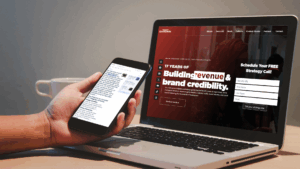With employees leaving at alarming rates, a line heard over and over again is that it’s easier to talk to a headhunter about their career than their own manager. Harvard Business Review reports a feedback campaign done by a 2,000 person IT division of an investment bank where they spent more than $1Million with a consultant to develop customized competency models to train manager to evaluate employee performance and give them feedback about their developmental gaps and opportunities.
It was $1 Million down the drain. Didn’t help even a bit. Two years later, more than half of their managers were still not completing performance reviews, analyzing that the reviews that WERE done had very little impact on performance and turnover was still incredibly high. Does feedback ever achieve its desired objectives when given during performance reviews?
We give feedback to help guide others to improve their performance, or level up. What many managers don’t understand is the difference between just telling someone they are missing the mark vs. helping them hit the mark through various guided steps.
We all know feedback is the hardest thing to both give and receive when looking at all types of communication. The one giving the feedback has to criticize, anticipating they will hurt the other person’s feelings so typically, feedback is an avoided conversation. And, if it DOES occur and takes place the wrong way, the recipient of the feedback is left feeling shame and less than.
Because humans feel uncomfortable with the feeling of shame, a perception gap begins to form. If the recipient changes their mindset to think no problem exists, then no shame can exist either. Or perhaps they tell themselves the narrative that the problem is not their fault. Perhaps they weren’t given the proper tools or coached closely enough.
On the other hand, if you try to give feedback while focusing on the positives, or the accomplishments, it diminishes the importance of the constructive feedback you are trying to get across. So if your employees aren’t benefiting from your feedback, what will help them level up?
Be an ally, not a critic.

There is not a single person who enjoys speaking to a critic, but everyone is open to chat with an ally. An ally displays care, confidence and commitment. And when you’re around an ally, your walls come down and the defense mechanism subsides. The steps to become an ally are simple: Empathize, Express Confidence in their abilities, and ask permission to offer collaboration.
Harvard Business Review shares an example of the process:
“Imagine a colleague is struggling as a team leader and engaging poorly with a disruptive team member. Initiating an “ally” conversation can be as simple as: “That sounds really frustrating. And I know you can handle it. Would you like to think it through together?””
Focus on the Outcome
Begin to talk about a future outcome that is going to energize the person you are speaking to. The outcome has to be bigger than the problem, something that feels rewarding and worth thinking through. A perfect way to put the ball in their court, and better understand how to guide the conversation, is simply asking what they want the outcome of the situation to be.
Find the Silver Lining
It’s true that everything happens for a reason, so what hidden opportunity does this problem highlight? Many times when problems arise, it can ignite a process, organizational or behavioral change. One that you may not have thought about if the issue didn’t take place.
Take Action
After brainstorming solutions while focusing on the outcome, it’s now time for your employee to put their feedback session in action. Discuss ways to see the feedback come to fruition, and remember to remain an ally during this process. It’s important that your employee follows through on taking the action determined by both of you, that they’re able to assess the results and pivot positively until they meet their desired outcome.
A common misconception in management is that if your employees fail, you fail. Your team only learns from their own failures, and by coaching your team to understand and assess their pitfalls, you are building a stronger and more adaptable team to be able to handle future issues without any speed bumps.













